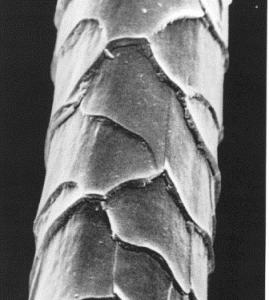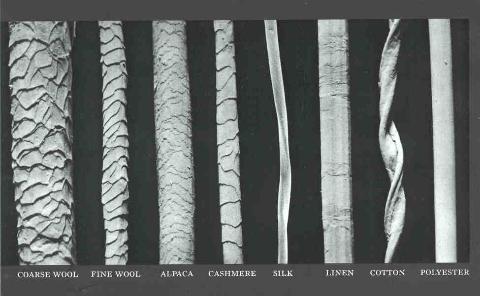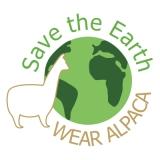Hey, Jon here.
Thanks for stopping by and checking out my blog, you’ve come to the right place if your looking for a review of alpaca socks. Specifically the All Terrain Alpaca Socks.
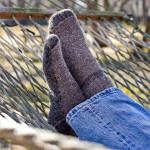
First of all I would like to clarify that I will be giving you and unrestricted review of the All Terrain Alpaca Socks that I purchased form an alpaca ranch out in Colorado.
I know what it’s like to have cold feet. Being married I also know what it’s like to have a wife with cold feet. Especially in the small of my back! YIKES! Cold feet make me miserable and just plain cold all over. If you’re looking for the best socks to keep your feet warm then I suggest you keep reading.
If you are anything like me you spend a considerable amount of time outdoors. This is true for me year round. A few years back I was searching the internet for warm clothes to wear on a camping trip with a few friends. I ran across an ad for Alpaca footwear. “Alpaca?” I thought to myself. I had never tried Alpaca socks before, always staying with wool or smart wool because I had heard multiple stories that they did not last, they were too hot, they shrank etc. However, this time I decided the time had come to give those fuzzy animals a try and I ordered a pair.
Click here now to get your very own alpaca socks!
When I received the socks I was impressed with how thick they felt. Not unusual for a high end sock but welcomed none the less. I immediately put them on. They were lined with terry giving them the extra softness and bulk that really made them comfortable. At first they seemed a bit tight on my feet but this subsided as they warmed up and they relaxed into a perfect fit. As I walked around the wood floor with them on the thickness was really noticeable. Almost like wearing a house slipper on my feet. These were really soft and comfortable socks.
Extremely warm socks!
The camping trip went well other than the freak wind and snow storm that eventually ran us out. (I guess I forgot to mention this was a winter camping trip. ) The warmth of these alpaca socks were truly amazing. The temperature was -2 F and my feet stayed warm in my boots, never once did I feel the need to layer on more socks even in my sleeping bag.
The sock thief!
Since the trip my wife discovered these alpaca socks. She says they are “comfy” and her feet do not get too hot in them. This is a blessing since I no longer get the cold feet in the back. However, I needed to purchase another pair since mine had been confiscated. This time I bought myself an extra pair in case the sock monster that lives in the dryer showed up leaving me with half a pair.
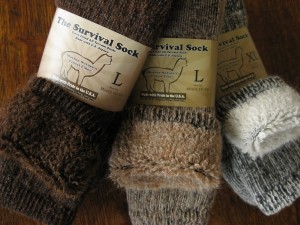
Very durable and take a beating
Since the original purchase of these alpaca socks I can say that the rumors I had heard about them not wearing well are not true. At least where these All Terrain Survival Socks are concerned. Being a family of four, our busy life makes doing laundry a chore at times. Many times it’s the oldest teenage child swapping in clothes into the washer while the younger one is pulling out the clothes from the dryer. These alpaca socks have been run through the washer with our regular outdoor clothes so many times I have lost count. Jeans, jackets all in the same load as these alpaca socks. Dryer too! After almost three years of doing this I can say that the initial pair of socks finally started to wear out, mainly due to the fact that we are very, very rough on them and do not follow the directions for washing and drying. I suspect that if one would actually take better care these would last much longer but I am extremely happy with these. The time it took for these to finally wear a hole in the heal was way longer than I expected.
Alpaca socks for men only?
The reviewed ones are alpaca socks for men. Now after furnther looking in their site they also have alpaca socks for women as well as children sizes. They are the same alpaca socks that I reviewed here however they are in respective sizes.
Let me sum up what I like about these
- They are made right here in the U.S of A. U.S. grown alpaca wool, or fleece they call it.
- These are 78% Alpaca, 20% Nylon and 2% Lycra giving them that stretch needed but allowing for a snug fit.
- The entire sock is terry lined giving it a very think and soft feel on your feet.
- The entire sole of the sock is reinforced making it very durable.
- Washer and Dryer tolerant, very important in my house!!
- Alpaca fiber is semi hollow, acting as an all natural insulator to trap warmth while staying light weight.
Click here now to get your very own alpaca socks!
“So, is there anything you do not like about these socks?” Actually there is.
- The top of the sock could use a slightly tighter band to hold them up on your leg. Don’t get me wrong, these do not stretch out like some poor quality ones do to where they fall down into a heap around your ankles. These ones are fairly snug however my personal preference is a tighter band.
- I wish I would have found these years ago. Get the word out!
Overall, what do I think?
If you are looking to try alpaca but do not want to spend $300 on a sweater or just have cold feet then start with these. These socks will definitely keep your feet warm and comfortable without breaking the bank. This alpaca sock brand is a mid-weight sock designed for a wide range of outdoor activities and climates. Since my original purchase a few years back I have make many repeat purchases and now the entire family wears alpaca socks. We all love them. I hope you give these a try, for your feet’s sake!
Click here now to get your very own alpaca socks!
